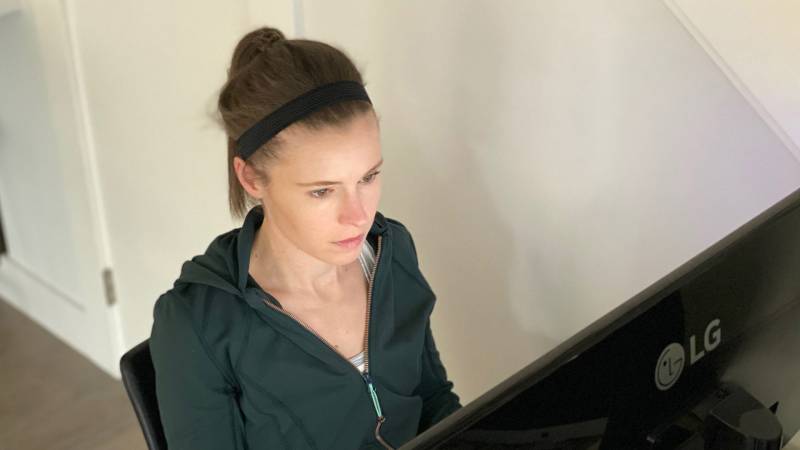Doctors and nurses at UCSF and San Francisco General Hospital will begin testing a wearable health device Monday that could indicate they are becoming ill from the coronavirus even before they feel sick.
Researchers are hopeful that the Oura ring, which takes continuous readings of body temperature, heart rate and respiratory rate when worn on a person’s finger at night, could yield data that predicts illness. That would allow doctors more time to take precautions — like self-isolating — so they don’t infect other health care workers.
“Because they're the ones that we desperately need to keep well,” said Ashley Mason, a psychologist at UCSF who is leading the research. “If this tells us things about symptoms that we're going to get — before we get them, then we've got time to get ready and help ourselves be safe and help the people around us be safe.”
Mason usually studies depression. Most recently, she was examining how people with depression can have trouble regulating their body temperature and she devised a study to see if sauna treatments helped.
“What we think might be happening when we use hyperthermia, or these sauna sessions, is we're re-turning the system on in the body, so that people are able to do more temperature regulation,” she said, and maybe feel less depressed.

